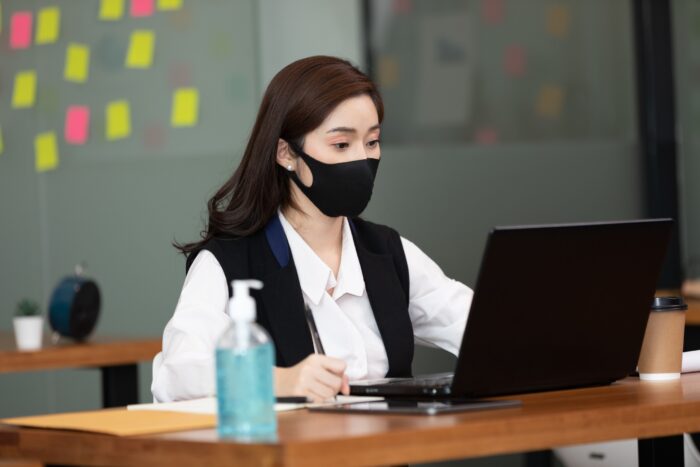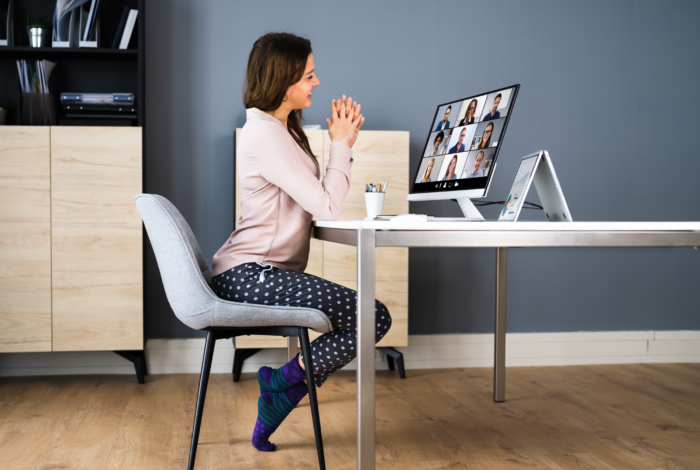Experienced employees key part of workforce strategy in Hong Kong

About 44% of employers see an increased need to retain older employees in the workforce and expect this to be a key trend over the next five years.
Older employees more likely to neglect work-life balance

Compared to their younger counterparts, employees aged 50 and above are more likely to put in extra effort at work beyond regular hours.
Companies in Japan offer extra pay to help workers deal with inflation

Some companies are providing “inflation allowances” to help employees cope with rising consumer prices as labour officials call for more permanent support.
Childcare the largest barrier to female workforce participation in Australia

Employers can offer the flexibility to work part-time hours as a means to increase female workforce participation.
Wear mask at work, employees in the Philippines told

Although it is not mandatory to mask up at workplaces, employees have been encouraged to continue the practice.
More employment opportunities for workers with disabilities in Singapore

Interest in companies to hire workers with disabilities has risen by 30% since this August, driven largely by the service sectors.
Salary hike expected for employees in Thailand

A projected salary increase of 4.5% across all industries can be expected for the next two years as companies offer higher wages to attract talent.
Exploring flexible employment for retired workers in Singapore

To enable more older adults to continue to contribute to the economy, a mindset shift for employers is needed.
Mask wearing at workplaces in the Philippines optional

Employers and their workers get to decide whether to continue wearing masks at work after President Ferdinand Marcos Jr scrapped the mask mandate.
Japan’s top business lobby urges firms to raise wages

It identified young employees, workers with children, and non-permanent employees as those who are most vulnerable to inflation.
Unilever trials four-day workweek in Australian office

For the next 12 months, employees will have the flexibility to choose which day or set of hours is most suitable for them to take off.
Employers in Malaysia urged to prioritise employees’ mental health

Leave should be granted to enable employees to deal with the mental stress that they feel at the workplace, says the Malaysian Trades Union Congress (MTUC).
China doles out more support for female employees

A revised law, which comes into effect January 1 next year, forbids the sexual harassment of women and reduces barriers to career advancement.
Hybrid work increases productivity in New Zealand

About 83.2% of New Zealand employees say the ability to work from anywhere has made them happier and more productive.
Younger employees struggling to adjust to flexible work

Besides facing burnout, some 20% of these employees have also expressed stress related to a lack of learning and development opportunities.
Remote work increases happiness levels among employees in Japan

Remote employees are able to spend more time with their families, sleep better, and experience less stress from commuting to the office.
Remote workers in Japan get more sleep

Working remotely allows employees to sleep better and feel satisfied if they balance telework and office work appropriately.
Work flexibility can address employee burnout

Flexible schedules can reduce burnout, increase employee engagement and loyalty, and promote business success.
Work expectations in hybrid workplaces vary

Despite the convenience, employees working remotely are concerned about fatigue and isolation, an IR survey finds.
Australia calls for employees’ rights to “disconnect”

To better protect employees’ mental health and wellbeing, the Senator committee is advocating for new protections for flexible work.
Gig workers in Singapore to receive more protection

Recommendations to improve the working conditions, as well as physical and financial health of gig workers, are expected to be finalised soon.
Indonesia focuses on female workers’ health and welfare

Companies in Indonesia have been urged to invest in female workers’ health to increase business productivity and employee loyalty.
Thailand aims for more smoke-free workplaces

The Health Promotion Foundation wants to add to the 2,000 workplaces around the country that are already non-smoking premises.
Prefecture in Japan offers more leave to grandparents

As part of efforts to help child-rearing parents, the prefecture of Miyagi plans to grant government workers leave to take care of their grandchildren.
Organisations lacking in mental health management

A study revealed that when it comes to integrating mental health into formal management systems, most firms have much to improve on.
Indonesia advocates workplace safety and health

Organisations have been urged to implement and observe labour norms that address wages, social assistance, as well as work safety and health.
Hybrid workplace can boost women’s workforce participation

Singapore President Halimah Yaakob has encouraged employers to institute family-care leave to allow workers to care for their families.
Return to office and “work from anywhere”, Google tells employees

Providing more flexibility and time off are some of the ways Google is using to lure staff back to the office.
Developing a humanised approach in hybrid workplaces

HRM Asia’s CHRO Series Malaysia will pave the way for sustainable employee journeys and highlight trends in human capital management.
Long COVID affects workplace productivity in Malaysia

Businesses in Malaysia have been urged to do more to support employees who continue to suffer from the disease.

